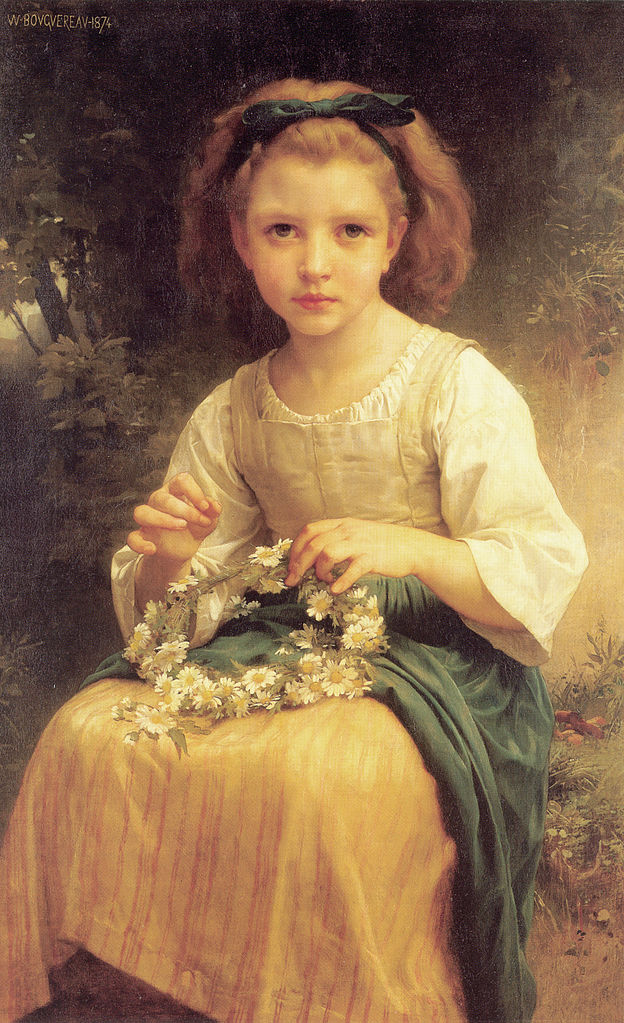
This sweet poem by John Clare comes from his beautiful collection Asylum Poems, written while he was interned in a lunatic asylum. It tells the love he shared with a young girl, and he gives her a lovely name: Mary Littlechild. It probably refers to his first love, Mary Joyce, whom he courted briefly at age 16, until her father put an end to their relation. She remained his ideal of love and beauty, and when he lost reason, Clare believed that Mary Joyce was his true wife. In July 1841, Clare absconded from the asylum and walked 140 km home, intent on returning to Mary.
The Forest Maid.
O once I loved a pretty girl, and dearly love her still;
I courted her in happiness for two short years or more.
And when I think of Mary it turns my bosom chill,
For my little of life’s happiness is faded and is o’er.
O fair was Mary Littlechild, and happy as the bee,
And sweet was bonny Mary as the song of forest bird;
And the smile upon her red lips was very dear to me,
And her tale of love the sweetest that my ear has ever heard.
O the flower of all the forest was Mary Littlechild;
There’s few could be so dear to me and none could be so fair.
While many love the garden flowers I still esteem the wild,
And Mary of the forest is the fairest blossom there.
She’s fairer than the may flowers that bloom among the thorn,
She’s dearer to my eye than the rose upon the brere;
Her eye is brighter far than the bonny pearls of morn,
And the name of Mary Littlechild is to me ever dear.
O once I loved a pretty girl. The linnet in its mirth
Was never half so blest as I with Mary Littlechild—
The rose of the creation, and the pink of all the earth,
The flower of all the forest, and the best for being wild.
O sweet are dews of morning, ere the Autumn blows so chill,
And sweet are forest flowers in the hawthorn’s mossy shade,
But nothing is so fair, and nothing ever will
Bloom like the rosy cheek of my bonny Forest Maid.
Source: Life and Remains of John Clare, The “Northamptonshire Peasant Poet” by John Clare, edited by J. L. Cherry, London: Frederick Warne & Co. (1873), digitised on Internet Archive. The poem is page 180. See also the hypertext transcription as a Project Gutenberg ebook.
This is a revised version of a post previously published on Agapeta, 2016/04/18.

